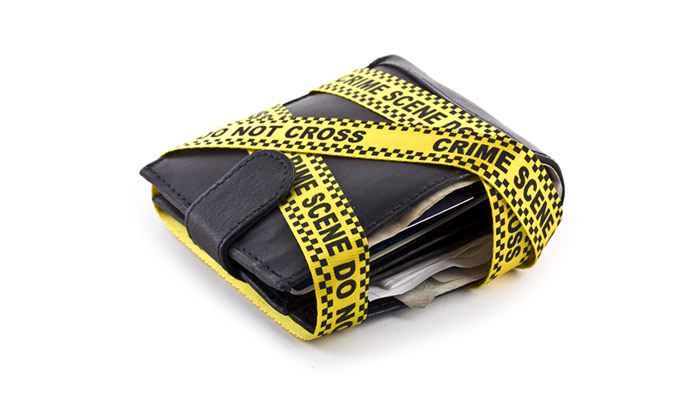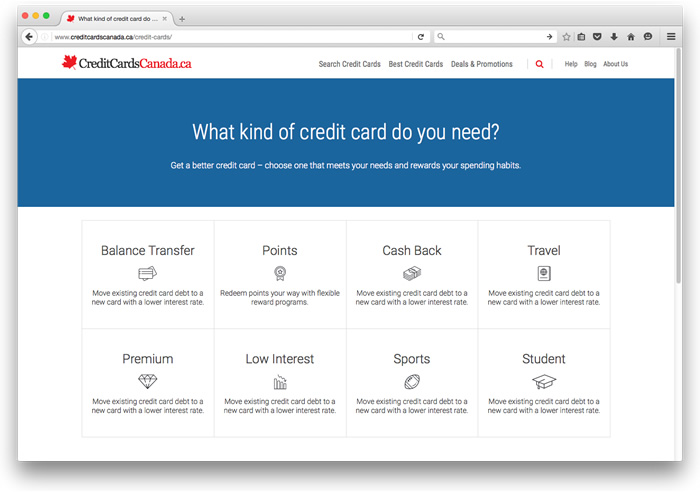The Pros and Cons of Retail Credit Cards
When it comes to credit cards, there is no shortage of choices for consumers. According to the Canadian Bankers Association, there are 76.3 million Visa and MasterCard cards currently in circulation in Canada. Credit cards come in all different shapes and sizes – there are standard credit cards, premium credit cards, and retail credit cards to name a few.

It should come as no surprise retailers are looking to cash-in on the lucrative credit card business. Retailers can conveniently flog their credit cards at booths when you’re shopping in their stores. While retail credit cards offer a way to save money at your favorite store, those savings come at a cost.
Advantages of Retail Credit Cards
Sign-up Bonuses: Signing up for a retail credit card can be an excellent way to score a discount at your favourite store. Often you’ll a discount on your very next purchase just for signing up. As long as you use your retail credit card responsibly and pay your balance in full by the end of the grace period, this can be a great way to save.
Discounts & Promos: It’s common for retail cardholders to get additional discounts or special offers. For example, you may be able to take advantage of an “additional 5% off” when you use your retail card during a sale. Just remember to stay on budget and don’t buy more than you can afford to pay back.
Interest-Free Periods: Retail credit cards sometimes come with an interest-free period. For example, you might not pay a cent of interest over the first six months for when carrying a balance. This can be an excellent way to manage your cash flow, as long as you pay off your balance in full before the interest-free period is over. If you don’t pay it off beware; interest will be calculated from the date you made the purchase, which can cost you a pretty penny, especially with the higher interest rates retail credit cards often carry.
Disadvantages of Retail Credit Cards
Credit Limit: While standard credit cards often reward you by offering you a higher credit limit, retail credit cards usually start you on a lower credit limit. For example, if your credit limit is $500, and you carry a balance of $250, your credit utilization will be 50%, which could lead to a lower credit score. If your credit limit only $500, you may only be able to spend $150 a month (30% of your credit utilization) without putting your credit score at risk.
Interest Rates: Retail credit cards usually come with higher interest rates. While the interest rate is 19.99% on a typical credit card, retail credit card interest rates may be as high at 30% at your favourite store. If you don’t pay off your balance in full before the end of your grace period, be prepared to pay through the nose.
If you carry a balance of $5,000 and only make the 3.0% minimum payments each month, it will take you over 18 years to pay off your existing balance at an interest rate of 19.99%, but if the interest rate increases to 30%, it will take you over double the length of time – to the tune of over 44 years.
Credit Score: Building a good credit history is important for your financial health, especially if you want to borrow money to purchase a house or car. If you’re looking to build a positive credit history, there are better ways than a retail credit card. Retail credit cards typically have less of an impact on your credit score than standard credit cards. Although a positive payment history will improve your credit score, retail credit cards typically don’t carry as much weight as a major credit card.
Limited Usage: Retail credit cards usually don’t come with the same flexibility as standard credit cards. Those used to using their credit card at any retailer of their choosing could be in for a rude awakening. Retail credit cards can usually only be used at the store that issued the card. For example, if there’s a sale on flat screen TVs at retailer A, but your credit card is for retailer B, you won’t be able to take advantage of the sale.
Out of Sight, Out of Mind: With retail credit cards, the temptation to overspend is even greater than standard credit cards. You’ll often receive rewards and discounts just for making purchases. If you don’t carefully watch your spending you could end up with a balance you won’t be able to pay in full at the end of your grace period and be forced to carry a balance. A good rule of thumb is to only purchase what you can afford to pay in full; you should also try to keep your balance to less than 30% of your available credit.
The Bottom Line
If used responsibly retail credit cards can be an excellent way to get a deal at your favourite retailer, but if you carry a balance, watch out – the interest rates can be as high as 30%! While retail credit cards can be beneficial if you like to shop at a certain store, they frequently have limited usage; often they can only be used at the store that issued the card. While retail credit cards are a good complement for standard credit cards, they’re not typically suitable as a replacement.




